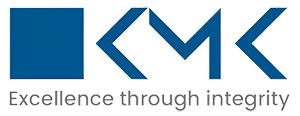SOC 2 Compliance and Outsourced Finance: What U.S. Companies Must Understand

As outsourcing becomes a core strategy for modern finance & accounting departments, U.S. companies are increasingly shifting critical functions—like bookkeeping, accounts payable, payroll, and tax prep—to offshore or third-party providers. While this model brings operational efficiency and cost savings, it also introduces serious vendor risk management challenges—especially around financial data security.
Enter SOC 2 compliance.
In 2025, SOC 2 compliance has become the gold standard for evaluating whether your outsourced finance provider is equipped to protect your sensitive data. For U.S. companies, understanding this framework is essential to staying compliant, avoiding reputational damage, and working only with trustworthy vendors.
What Is SOC 2 Compliance?
SOC 2 (System and Organization Controls 2) is a framework developed by the American Institute of Certified Public Accountants (AICPA) that assesses how service organizations manage customer data, particularly in cloud-based and outsourced environments.
Unlike SOC 1, which focuses on financial controls, SOC 2 compliance evaluates data security and privacy controls across five key Trust Services Criteria:
- Security – Protection from unauthorized access
- Availability – Reliable system uptime and responsiveness
- Processing Integrity – Accurate and timely data processing
- Confidentiality – Protection of confidential information
- Privacy – Handling of personal information in accordance with standards
A vendor who passes a SOC 2 audit demonstrates a high level of commitment to financial data security, internal controls, and operational maturity.
Why SOC 2 Matters for Outsourced Finance in 2025
Outsourcing financial functions means handing over access to:
- Bank accounts and reconciliations
- Payroll and employee SSNs
- Tax filings and PII
- Investor and customer billing information
If that data is mishandled—or worse, breached—the consequences for U.S. companies can be devastating. Regulators, clients, and shareholders will ask: Did you vet your provider? Were they SOC 2 compliant?
Here’s why SOC 2 compliance is critical for any outsourced finance relationship:
- Reduces vendor risk exposure
- Strengthens your compliance posture
- Enhances customer trust and brand reputation
- Improves audit readiness
- Protects against data breach liabilities
SOC 2 Type I vs. Type II: Know the Difference
When reviewing a provider’s credentials, it’s important to understand which type of SOC 2 report they hold:
- SOC 2 Type I evaluates the design of controls at a specific point in time.
- SOC 2 Type II assesses the operational effectiveness of those controls over a period (usually 6–12 months).
U.S. companies should prioritize SOC 2 Type II when evaluating long-term outsourced finance partners, as it shows real-world performance and discipline over time—not just theory.
What to Look for in a SOC 2-Compliant Outsourced Finance Provider
A firm claiming SOC 2 compliance should be able to produce a recent audit report (within the last 12 months) and clearly explain its internal controls. But that’s not all. Here’s what U.S. companies should expect:
- Access Control Policies
Clearly defined user roles, permissions, and activity logging to prevent unauthorized access.
- Data Encryption Practices
End-to-end encryption of client data—both in transit and at rest—across all platforms and communications.
- Employee Background Checks and Training
A secure team starts with secure hiring practices and ongoing cybersecurity awareness programs.
- Incident Response Readiness
A documented, tested plan for addressing breaches, cyberattacks, or other security incidents.
- Vendor Management and Sub-processor Policies
SOC 2-compliant vendors should also vet their vendors—especially those who may process your data.
Vendor Risk Management: Questions to Ask Before You Outsource
Don’t wait until the contract is signed to ask the hard questions. When evaluating a potential outsourced finance provider, include these SOC 2-aligned questions in your due diligence checklist:
- Do you hold a current SOC 2 Type II report? Can we review it?
- How do you manage access to our financial data internally?
- What security certifications or training do your employees undergo?
- How do you handle client data backups, recovery, and availability?
- Have you experienced any data breaches in the past 24 months?
These questions reveal more than just compliance—they signal how seriously your provider treats financial data security.
SOC 2 and the Future of Finance Outsourcing
As more U.S. companies embrace remote-first, global delivery models, the line between in-house and outsourced finance functions will continue to blur. Regulators, investors, and insurers are now expecting SOC 2 audits not only from software vendors, but also from BPO and offshore accounting partners.
SOC 2 compliance is fast becoming a business prerequisite, not a competitive differentiator. Firms without it will increasingly be left out of RFPs, deals, or audit cycles.
Read Also: Data Visualization’s Function in Financial Reporting: Converting Data into Understanding
How KMK Ensures SOC 2-Aligned Outsourced Finance Services
At KMK, we serve as a secure offshore extension to your finance & accounting department—without compromising control or trust.
We follow SOC 2-aligned practices across all outsourced services:
- Dedicated access roles and granular user permissions
- Encrypted systems, secure file transfers, and activity logs
- Rigorous onboarding and training for every finance associate
- Internal compliance audits and continual process improvement
- NDA enforcement and sub-processor vetting
Whether it’s monthly close, payroll, fund reporting, or tax prep—our clients know their financial data security is protected with discipline and diligence.
The Bottom Line: Choose Partners Who Take Compliance as Seriously as You Do
Outsourcing your finance function doesn’t mean outsourcing responsibility. In 2025, U.S. companies must make SOC 2 compliance a core requirement when selecting partners—not an afterthought. Choosing the right outsourced finance & accounting team is not just about cost or scale—it’s about who you trust with your financial backbone. Still unsure how to assess a vendor’s compliance posture? That’s where KMK comes in. We help forward-thinking U.S. companies reduce cost, enhance performance, and protect sensitive financial operations—with zero compromise on vendor risk management or data security
 Dev Kothari, a seasoned leader at KMK, heads the Special Teams, where he leverages his extensive expertise in managing large-scale accounting and tax return processing for U.S.-based clients. With a keen eye for workflow optimization and stakeholder collaboration, Dev drives exceptional efficiency and quality in high-volume project delivery. As a dual-qualified CPA (AICPA, Arizona) and Chartered Accountant (ICAI), Dev’s blend of strategic insight and technical prowess positions him as a key asset in ensuring KMK’s clients consistently achieve their financial goals.
Dev Kothari, a seasoned leader at KMK, heads the Special Teams, where he leverages his extensive expertise in managing large-scale accounting and tax return processing for U.S.-based clients. With a keen eye for workflow optimization and stakeholder collaboration, Dev drives exceptional efficiency and quality in high-volume project delivery. As a dual-qualified CPA (AICPA, Arizona) and Chartered Accountant (ICAI), Dev’s blend of strategic insight and technical prowess positions him as a key asset in ensuring KMK’s clients consistently achieve their financial goals.
Let’s Take Our Conversation Ahead
KMK is a top outsourced accounting and tax service provider. We offer end-to-end accounting and tax services for small to mid-sized businesses, with a team of 875+ professionals, including certified public, chartered, and staff accountants.
USA:
651 N Broad St Suite 205, Middletown, DE 19709, USA
Phone: 310-362-2511
India:
300, Sankalp Square-3B
Sindhu Bhavan Marg,
Ahmedabad, Gujarat 380058
For Career: 91-98240-42996
Developed by Bluele | Copyright © 2025 | KMK Ventures Private Limited. | All Rights Reserved


